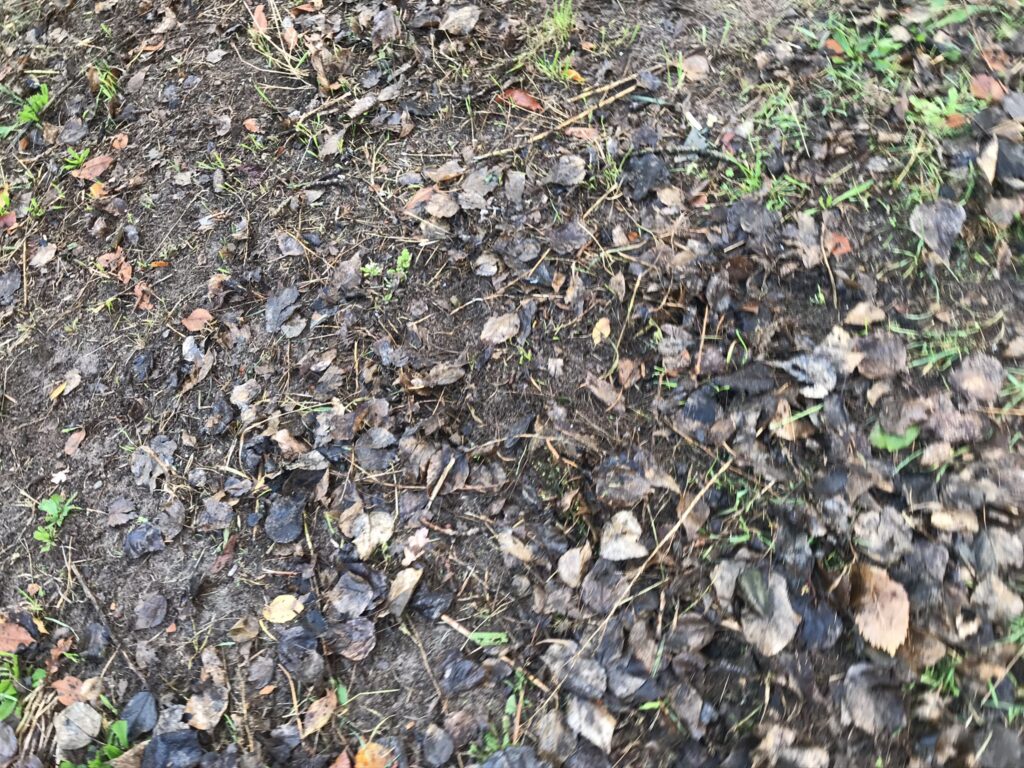2023
While all life is interconnected and interdependent, we are the only species that has become separated from itself, from other species and from the web of life that sustains us. The extractive and colonising system that controls and depletes the non-renewable resources on which we depend has separated us from the organic cycles of regenerative life and the Earth’s abundance, with devastating effects on entire ecosystems. Given the ecological challenges we face, in my practice I’ve been questioning how we, as creative beings, can restore and renew our interconnection with the web of life on our planet.
Since long time, many people have been warning, over and over again, that humanity needed to change their ways to avoid a major crisis, that it is not enough to just do less damage to the environment. It is absolutely necessary to learn (or remember) how to participate with the environment (Reed 2007, 674). Today we live an environmental crisis of planetary proportions, triggered by our political and social systems, that impose an abstract order of “progress” through massive production, efficiency and control of space, time and resources. But as it is obvious, these “progress” systems of domination are totally dysfunctional with our planet’s biological interdependent systems, and tend to dissociate us humans from the organic cycles of life. As over 30 years ago Félix Guattari claimed, the ecological disruptions of the environment are only the visible part of a deeper and larger problem, concerning ways of living and being in society that capitalism has imposed and dominated globally. In order to find a way out of this crisis, he argued, we need to link together environmental ecology, with social ecology and mental ecology. In other words, humanity needs to reinvent interpersonal relationships through innovative and environmentally conscious practices, linked to the roots of people’s ancestral wisdom of places and local organic cycles, so to renew individual and collective subjectivities, using technical-scientific advances in the service of preserving life on Earth.
The world will only be different if we live differently. (Maturana, Varela 1987, 245)
Living differently involves changing the ways we relate to ourselves, to others and to life as a whole. It’s about living related, from a more systemic perspective. Taking care of the Earth means taking care of ourselves, our relations, our communities. It means participating in the processes of life in ways that are creatively supportive, affective, balanced and regenerative.
Taking care of ourselves begins with returning to our bodies, listening deeply to our being. For me, listening has always been a starting point for creating, for being present. While listening I am receptive, I learn from the energy fluxes and cycles, I meet my needs, I regenerate myself. I reconnect to my essence and my belonging, to my deep, dark, fertile soil, my creative, life-giving force. I remember who I am, I desire from my intimacy, so that I can act in tune with my creative being, share through my authentic expression, relating in sincerity and reciprocity with others.
Interbeing with life and as life is driving people and communities around the world to create diverse, locally adapted, thriving cultures in global collaboration. Regenerative cultural patterns are beginning to emerge as an “expression of life in the process of transforming itself”. (Daniel Christian Wahl 2016)
Interbeing is about recognising the strength of our relational and interdependent nature. It is about being human not as a separate species, but as creative participants of the planet’s web of life. As pioneer plant species that cooperate in regenerative processes in the restoration of damaged ecosystems, we need to have this role in our human society. Each genuine to and in tune with their gifts and talents, rooted in life values, honoring elders wisdom, interconnected, cross-pollinating, spreading seeds in fertile common grounds. It is time to unite ourselves in regenerative human cultures and, through our arts and co-creations, nurture living systems that safeguard and increase abundance and diversity for future generations and for life as a whole.
References
Guattari, Felix. 1989. Les Trois Écologies, Editions Galilée, Paris.
Maturana, Humberto R., Varela, Francisco J. 1987. The Tree of Knowledge: The Biological Roots of Human Understanding, New Science Library, Shambhala.
Reed, Bill. 2007. “Shifting from ‘sustainability’ to regeneration”, Building Research & Information, 35:6, 674-680, DOI: 10.1080/09613210701475753
